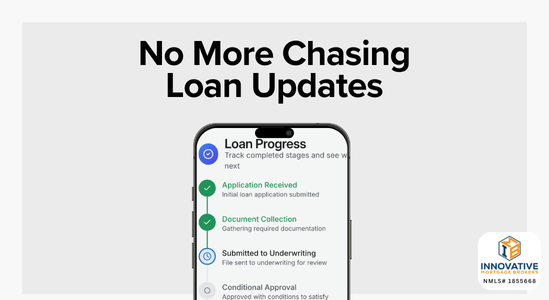Mortgage rate volatility, oil shocks, and why execution matters more than quotes When a war…
Hourly Income and Mortgage Approval
Breaking Down Income Guidelines for Fannie Mae, Freddie Mac, and FHA Loans
When applying for a mortgage, your income plays a crucial role in determining your eligibility. For hourly employees, the process of calculating income can be slightly more nuanced than for salaried workers. Understanding how lenders assess hourly income ensures you’re prepared and informed about the requirements.
In this article we provide an in-depth look at how hourly income is calculated for mortgage qualification and highlight the differences in guidelines from major agencies such as Fannie Mae, Freddie Mac, and FHA.
Importance of Income History
Lenders assess the stability and reliability of your income by looking at your employment history. Each agency has specific guidelines:
- Fannie Mae: Recommends a two-year employment history but allows for shorter duration if the borrower’s employment profile shows compensating factors, such as consistent career progression.
- Freddie Mac: Prefers a two-year employment history but permits as little as 12 months in certain cases.
- FHA: Requires verification of a two-year employment history to establish income stability.
If you’ve recently changed jobs, but your income level remains consistent, lenders may still consider your application as long as they can establish continuity in your employment.
Income Continuance Requirement
For income to be considered eligible, lenders must determine that it is likely to continue for at least the next three years. This standard ensures borrowers have the financial capacity to repay their loans over time.
How Hourly Income is Calculated
The method used to calculate your hourly income depends on whether your hours are consistent or fluctuate.
Non-Fluctuating Hours
If your work hours are steady (e.g., 40 hours per week), lenders calculate your income using this straightforward formula:
/ 12 Months
For example, if you earn $20 per hour and work 40 hours a week:
($20x40x52)/ 12 = $3,467 Monthly Gross Income
Fluctuating Hours
If your hours vary, lenders average your income over a set period to determine your monthly qualifying income:
- Fannie Mae: Average the income if it is stable or increasing. If income has declined but stabilized, the lower figure is used. Declining income trends require further analysis to assess stability.
- Freddie Mac: Use the year-to-date (YTD) average income, and additional documentation may be required if income fluctuates significantly or declines.
- FHA: Average the income over two years or use a 12-month average if there’s evidence of a pay increase and increased hours worked.
Pay Frequency and Monthly Income Conversion
Depending on how often you’re paid, lenders use specific formulas to convert your income into a monthly figure:
- Annually: Divide the gross annual income by 12.
- Monthly: Use the gross monthly income as stated.
- Twice Monthly: Multiply gross pay by two.
- Biweekly: Multiply gross pay by 26 pay periods and divide by 12.
- Weekly: Multiply gross pay by 52 pay periods and divide by 12.
- Hourly: Multiply the hourly rate by the average hours worked per week, then by 52, and divide by 12.
Documentation Requirements
To verify your hourly income, lenders typically require the following documents:
- Fannie Mae and Freddie Mac: Accept pay stubs, W-2 forms, or a Verification of Employment (VOE) from your employer.
- FHA: Requires a combination of pay stubs and W-2s, or alternative electronic/telephone verification methods. If you’ve been with your current employer for less than two years, additional documentation, such as school or military records, may be required to establish a complete two-year history.
Considerations for Variable Income
Lenders pay close attention to trends in your income:
- Stable or Increasing Trends: Income is averaged over the applicable period, but significant increases (greater than 10%) require additional documentation and analysis.
- Declining Trends: If income has declined, lenders will use the lower, stabilized amount. Further analysis may be required to determine if the decline was due to a one-time event (e.g., injury) and if the current income level is sustainable.
Agency-Specific Highlights
Each agency has unique approaches to hourly income calculations:
- Fannie Mae: Focuses on stable or increasing income trends and provides flexibility for shorter employment histories if compensating factors exist.
- Freddie Mac: Requires detailed analysis for significant income fluctuations or declines and emphasizes YTD averages.
- FHA: Allows for shorter averaging periods (12 months) when there’s documented evidence of increased pay rates and hours.
The Importance of a Knowledgeable Loan Officer
Navigating hourly income guidelines can be complex, especially when factoring in fluctuating hours or variable pay structures. This is where a knowledgeable and experienced loan officer becomes invaluable.
A skilled loan officer understands the nuances of agency-specific requirements and can effectively communicate your income details to underwriters. They ensure that all necessary documentation is accurate and complete, minimizing the risk of delays or complications in the loan process. Having an expert by your side ensures that your financial profile is presented in the best possible light, helping you secure the mortgage you need.
Access to Diverse Lending Programs
At Innovative Mortgage Brokers, we work with a wide range of lenders helping clients in Pennsylvania (PA) and Florida (FL). This means that if traditional income calculations don’t work for your situation, we have access to other programs that may use different income calculation methods. This flexibility allows us to explore alternative solutions tailored to your unique financial profile, ensuring you have the chance of securing a mortgage that meets your individual needs. At Innovative Mortgage Brokers we work with many lenders. However, we don’t work for the lenders, we work for YOU ensuring you get a competitive deal, stress-free
Final Thoughts
For hourly employees, understanding how lenders calculate and assess income is crucial to preparing for the mortgage application process. Consistent documentation, a stable employment history, and evidence of income continuity are key factors that lenders consider.
By familiarizing yourself with these guidelines, you can approach your mortgage application with confidence. If you have questions or need assistance navigating the process, give us a call. Consultations are always free, and there are no obligations.





